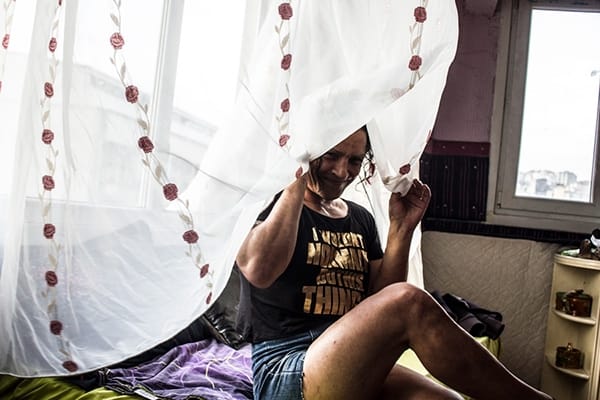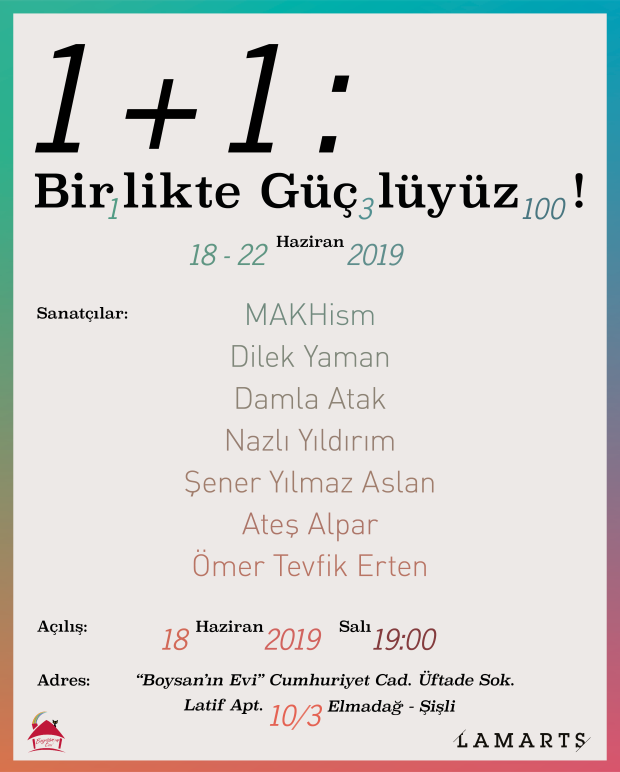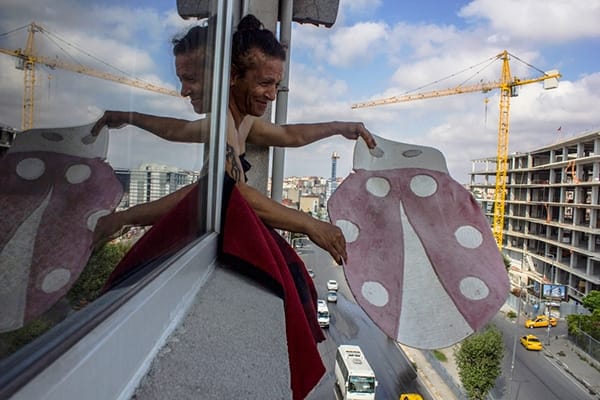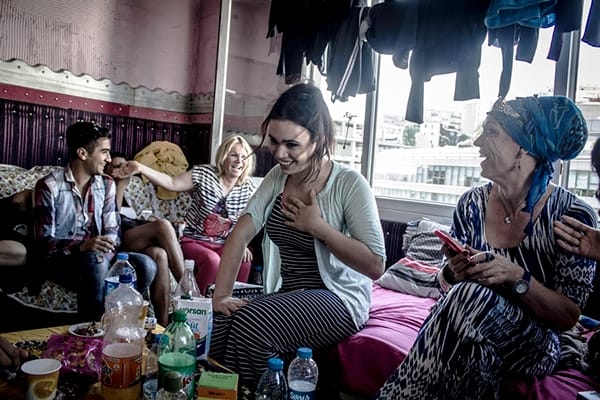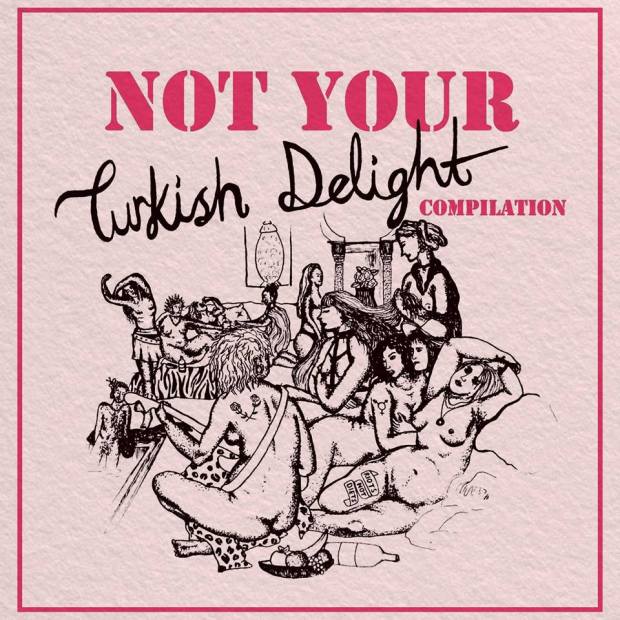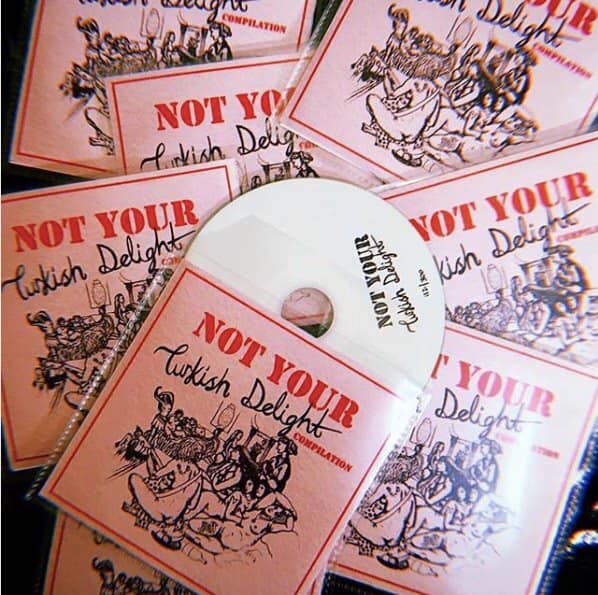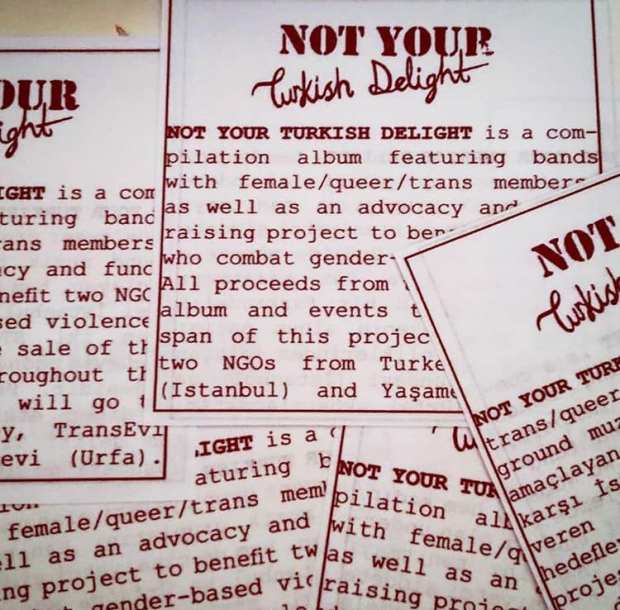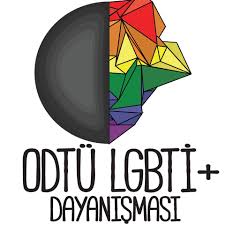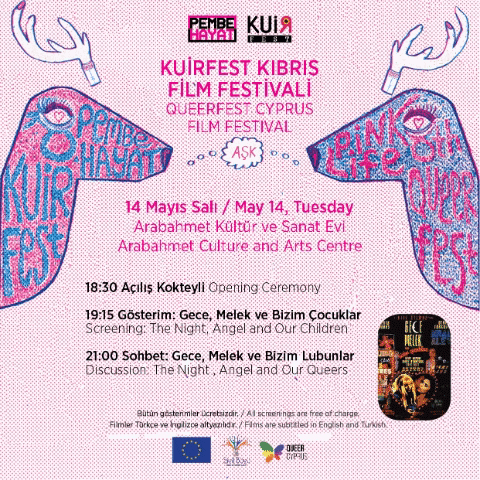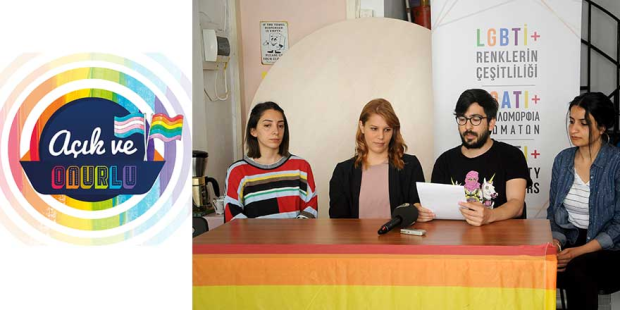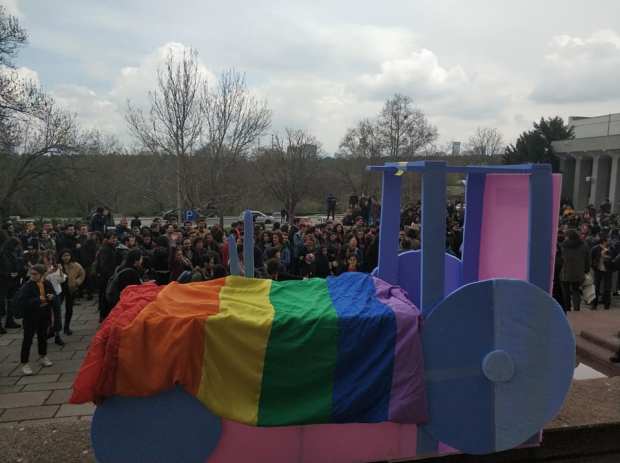Trans individuals share what their names mean to them.
Source: Ishi has a name! (İshi’nin adı var!) Deniz P. Darno, Kaos GL, April 5, 2019,
http://kaosgl.org/sayfa.php?id=27993&fbclid=IwAR37UQxfqMxm4LaZcCAqqh4s2jDKCGxIsxFUkqsTye45NQAEOiXJSXYk4JE
I want to tell the beginning of the story, the moment when I learnt that my grand-grandmother was a Lebanese Armenian. First, I felt shocked and sad because I hadn’t known it. Then, I asked so many questions. Trying to learn the details of the story was like climbing a hill. Though, I couldn’t find an answer to one of the basic questions. “What was her name?” I asked the eldest of the family already, but none knew the name. Here, another one of the problems which look seemingly easy: she has to have a name, what was it? I guess it was the time when I first understood that names have a story within. There are valuable studies about names which we forget, ignore, or neglect. The topic/purpose of this article is to present the story of the names of the transgender individuals who chose their own names and have to face an intense resistance against this choice of theirs, through their own words.
“I really love my name, because I came back to the real me!”
Aras: I have been Aras ever since I could remember. I even forgot when and how I chose this name. I learned the meaning of it much later and I told myself that I guess I chose the right name; it means finding something later and embracing it as if it was always yours.
Aslı: My friends reacted [badly] when I first told them that I had chosen the name Aslı. They told me I could choose a more modern and beautiful name. But I easily overcame their prejudice; I chose the name Aslı because I came back to the real me. I chose it because I was re-born. I really love my name, because I came back to the real me! (Aslı: Original, Real)
Aylin: There are a couple of important women who came into my life and their names were Aylin. I chose this name because I was really inspired by them and I want to further their energy. It also means moonlight. The moon has no light itself, it reflects the light it receives from the sun. That means, it reflects light which already exists. The moon brightens up with the light it receives; so maybe I’ll brighten up with this name and the process. I always exist but I brighten up with the light, my name. Also, I bring light to the darkness in some way.
Defne Gülce: Gülce is related to my family; my mother’s name is Gülden and my elder sister’s name is Gülşah. So, I chose it. Defne has a mythological story. Defne is a tree and it has a fairy girl inside. I see the tree as the body I was born with and the female hidden inside the tree means a lot to me. There is a god called Apollo in the story and he, manhood that is a thorn in her flesh, searches for Defne. I chose the name Defne because I think it reflects me a lot. (Defne: Bay/laurel (Eng. Daphne); Gülce: Like a Rose)
Deniz: The feeling of “unable to fit in” was one of the feelings that I felt most intensely at the beginning of my process. I felt the same about my name on my identity card and wanted to change it. Then I found my name from one of Arkadaş Zekai’s poems that I love: “If you reach to caress the curly brunette hair at the point where love makes love with love, if you see the golden sparkles inside the curly brunette hair, that means you are inside of the sea, even if the sea is a far away from you.” (Deniz: Sea)
Dila: One day, I stepped in front of a mirror, looked at it, and told myself: what goes together with this face? What, what… Many names came into my mind. Then, I had a friend, we were talking, and they told me “Tell me how you really feel when you look at your face and let’s find a name according to it.” I said that “I see a really heartfelt, warm sincerity.’’ It looks like I am speaking highly of myself now, but anyway! Then I learned that Dila means a heartfelt sincerity and chose the name Dila for myself.
Eda: When I was around 8-9 years old, there was a grocery store on the ground floor of the apartment where we used to live and its owners were our neighbours. They had a daughter and her name was Eda. I used to play games with her. I had only the name on my identity card then, but it was like I would identify myself with her. I would run to respond when someone called her. My name comes from those times. (Eda: Coquetry, Coyness)
“I wanted my name to be Hayat (Life) because I chose to hold on to life.”
Efruz: The meaning of Efruz, which is a Persian name, is glamorous light; it also means igniting, emblazing. I define myself as a Middle Eastern woman and I have never felt ashamed of having been born in this part of the world. On the contrary, it is an honour for me to having been born here and therefore, I wanted my name to belong to this region. I started to look at Kurdish, Persian, Arabic, Syriac, Armenian, and Romaic name dictionaries. I was looking at them with one of my friends. Then I came across Efruz. I fell in love with its phonetics; its meaning was splashy! Then I said yes, I am Efruz! I also quite like the fact that the name originates from Persian which has existed since ancient times and so, I chose the name Efruz.
Eva: My friends suggested this name to me during my 18th birthday. Eva is the Latin version of Havva. Havva is the first woman ever created; they told me “you created yourself” and suggested it with this motivation. We can say that Eva was found during funny chit chat. However, my name is associated with a vampy image and I face prejudices most of the time because it is generally considered as outside of the norm. In such a society which loves standardized types and excludes minorities, these names can, unfortunately, make life a little harder for us.
Hayat: While I was deciding my name, I especially didn’t want to choose one of the widely known names, because names such as Ayşe or Fatma are so traditional and have a meaning corresponding to a certain female image. In other words, there is an image coming right to your mind when you say that name; so, I didn’t want something like that. I wished for a name which does not correspond to anything and which I will fulfil. In addition, considering the difficulties that I had at the beginning of my process of coming out, I can say that it is a fight to hold on to life. I was in the middle of the point where I could continue to my transition or end my life. It was a period in which I had intentions, attempts to commit suicide. But I chose to hold on to life despite all the difficulties, so I wanted my name to be Hayat. (Hayat: Life)
Janset: I guess it has been three and a half years since the time I chose my name. At first, it was hard to choose a name, start to use it, and make people around me get used to it. Janset is a name that is really valuable for and belongs to the Circassian language, culture, and history. It means sunrise. Before telling you about how I chose my name, I want to mention a couple of things. When I came out as being a trans person, which part of my body I needed surgery for was one of the first things that I had faced. The name problem was a crisis following right after it. I was not known in the activist community and the sooner I chose a name and started using it, the easier it would be for people to get used it. But I waited even so. It was really hard to change the name which is a reminder of my deceased mother who gave that name to me. Also, I had spent the first 27 years of my life with that name. There were a couple of people who want to be a mother to me and therefore to choose a name for me, which is a tradition for trans people. It is a tradition in the history and culture of trans women from Turkey. I was distant, but also so close to that system. At first, I couldn’t capitalize on it. Both my character and my sociocultural background were not suitable for it. All these are different sides of it though, but they are the factors that affected me while choosing my name. My father is Zaza, my mother’s father is Turkmen and mother is an Iranian. So, I don’t have any relation to being a Circassian. When I was born, my mother named me with a name that she created by combining a part of her name with a part of my father’s name. When I decided to choose my own name, I wanted it to be a name which can tell all of my story and character through its meaning and keep the part from my mother alive. Then, the actress Janset whom I really like came to my mind. I searched for the name and when I read the meaning: I said my name is Janset.
“I chose the name Kuzey (North) because I found my direction.”
Kardelen: My mother had given the name to me, even before I was born. In other words, my mother had wanted and expected to give birth to a girl, they had even chosen a name: Kardelen. But they were baffled and named me with the name on my identity card after I was born. A while after I came out as a trans individual, my mother suggested this name which they had thought of giving to me before. Kardelen is really special to me because of its meaning. Because it really suits the trans spirit. Kardelen is a flower kept under snow, a fighter flower. Therefore, I really love its meaning as well. (Kardelen: Snowdrop)
Kuzey: When people want to find their direction, they look at the North. For example, sailors look at the North through their compasses and find their direction. When a tree is covered with moss, the moss shows the North. So, I chose the name Kuzey, because I found my direction. (Kuzey: North)
Lukka: I hiked across the Lycian Way by myself a couple of times in 2015. It is located in the Southern part of Anatolia, between Fethiye and Antalya. I have been there many times and always hiked by myself. In the meantime, I researched its history, mythology etc. so as to commune with that place; I even painted it many times. Climbing the mountains and hiking by myself there were really meaningful to me. I enjoy climbing mountains and I see this activity as some kind of an expression of freedom. Also, the scenery is amazing and the archaeological remains, various plants, trees and people you see along the road have made the hiking precious. So, my name came to mind when I researched Lycia more. I learned that the masculine version of Lycia is Lukka, which also means light.
Mert Toprak: I have two names; it was hard to officialise it at the court, but both of them are really meaningful to me. The first one was given to me by a woman whom I had a relationship with for 4 years. Unfortunately, she got married by force and now has a child whose name is Mert, too. She was a really special woman for me. And the story of the second name is that my family was really transphobic at the beginning of my process of coming out and I would even receive death threats. So, I told myself that I would finish this process even if I would depart from this world and become a part of the earth. So, I chose the name Toprak by myself. (Mert: Brave and Trustworthy; Toprak: Earth)
Nora: My name means God’s light and good spirit. The reason why I chose it is because it is a different name that is out of the ordinary; besides, I think this name really suits me. I didn’t want to use such Turkish names as Ayşe, Fatma, Hatice, etc. I have been a trans individual for 5 years, but I have used the name Nora for 15-16 years. In other words, it isn’t a name chosen after becoming a trans individual.
Tolga: My mother picked my name because it is close to my name on my identity card. We chose and accepted it “so that people would not have a hard time to get used to it.” In addition, the whole process is like my rebirth, so I wanted my mother to name me, and she suggested this name to me. (Tolga: Helmet)
P.S.: The article only contains the stories of the transgender individuals who chose to change their names. However, we know that this change is not an obligation. The experiences of each and every one of us with our processes are unique; ultimately, the bottom line is to be reborn, name ourselves, and live our lives as we wish.
*I would like to thank all the friends who shared their stories, and dear Metin Akdemir & Gülşah Tekin.
**The illustrations at this article were used with the permission of the artist Rory Midhani.
***Title: Ulus Baker, Yüzeybilim- Fragmanlar, ed. Ege Berensel, Birikim Yayınları, 2014 [2009], p. 242-243.
Share this:
-
Click to print (Opens in new window)
-
Click to email this to a friend (Opens in new window)
-
Click to share on Facebook (Opens in new window)
-
Click to share on Pinterest (Opens in new window)
-
Click to share on Tumblr (Opens in new window)
-
Click to share on Reddit (Opens in new window)
-
Click to share on Pocket (Opens in new window)
-
Like this:
Like Loading...
